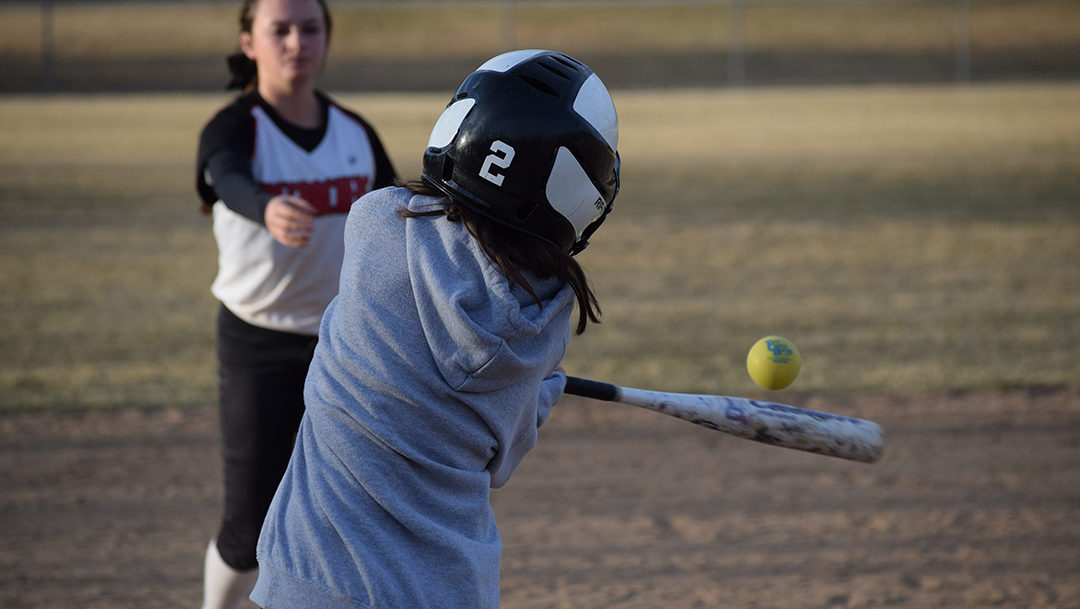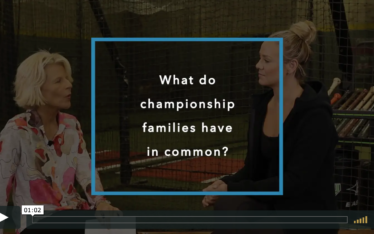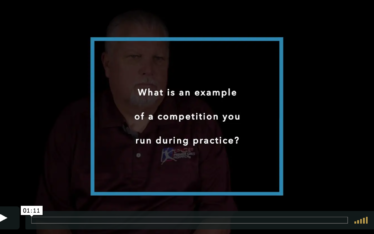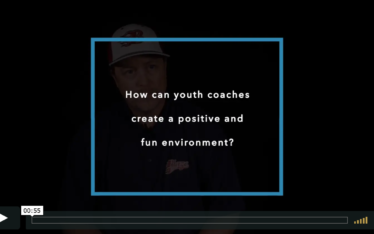Cindy Bristow Of Softball Excellence: 5 Ways Parents Can REALLY Help Their Kids
Wanting “the best” for your child, and helping her to be her best in the short and long term are not the same thing. In this blog, coaching expert Cindy Bristow of Softball Excellence gives five clear ways that parents can help kids develop habits to help with real growth.

All parents want what’s best for their child; it’s been that way since time began. But with more pressure on kids to excel than ever before it important that parents know the 5 ways that they really CAN help their kids – from school to softball.
Parents are helping their kids now more than ever before. And while that isn’t always bad, it can have a reverse impact on a kid’s ability to help themselves. Find 5 ways parents can help their child that will make them better in the process.
NOTE: I usually write this article directly to the players but I’m making an exception this time and directing my comments at parents. Since I work with kids all day long I see how the good intentions of parents can actually backfire and have adverse effects. The following comments are based on the emotional, mental and physical skills that excelling at the game of softball requires, and the role that parents take in the development of those skills.
No parent wants to harm their child, or see them fail. Mine didn’t, my parents-parents didn’t and your parents didn’t. That’s why parents do so much for their kids; it’s your way of “helping” them. It’s a parent’s job to raise kids to learn how to take care of themselves and become responsible adults. From learning how to walk, tying their shoes, brushing their teeth, getting dressed, doing their homework, doing their chores around the house, learning to drive and so on – parents are constantly helping kids learn how to do things for themselves so they can grow up and become responsible adults and possibly parents themselves one day.
In addition to teaching kids how to become adults, a parent’s role is also to protect their kids. When kids are born they can’t do anything for themselves – including eating, walking and talking. Initially, you had to do everything for your kids, but as they get older and are able to do more on your own, it’s easy to stay in this role of helper instead of shifting to the role of teacher. Teenage kids need to be taught responsibility and consequence where younger kids need more help learning left from right, blue from red and no from yes.
As a parent, you see your child grow both physically and mentally. They become taller and smarter and more of who they’ll eventually become. This is an exciting change to see our kids go through, but as they change as kids, we also need to change as parents. How we parented them as young toddlers isn’t the same way we need to parent them as teenagers. The more capable a kid is of doing something for themselves, the more we should teach them how. We should help them understand the pros and cons of certain behavior and then let them choose their behavior. Making good decisions based on the consequences for actions is part of being an adult and that’s our job as parents – to raise our kids to be good, kind, responsible adults.
So here’s a list of 5 ways that parents can REALLY help their kids by allowing them to learn how to do things for themselves now so that when they’re older, they’ll do these things really well:
Let Them CARRY It – In golf, the golfer has a person that actually carries their heavy bag with all their clubs in it, they’re called a caddie. The golfer doesn’t carry their bag, their caddy does. I guess that’s so the golfer can concentrate on golfing and not tire out from the weight of their bag and clubs. Well, as parents you aren’t your kids caddy! Their softball bag doesn’t weight anything close to a golf bag, and even if it did, it’s their stuff for their sport and THEY should carry it! When they get to college nobody will carry their book bag around school for them, or their softball bag if they happen to play college softball. When they get a job, nobody will carry their briefcase for them. I know it sounds harsh, but it’s their stuff, for their sport, or class, or job – so THEY should carry it! Carrying their stuff makes them stronger physically and mentally. It means they’ve got to find it, remember it and then actually carry it (or roll it). It’s not that hard (after a while).
Let Them TALK It – You might be a parent that likes to talk for their child – many do. And while it can make things easier in a difficult discussion, it only makes your voice stronger not theirs. Sure, you might be super proud of them and really excited to tell their coach or teacher about how well they did, or the problem that they’re having, but that doesn’t really help them. First of all, it will be your story, not theirs. You might have a slightly different view of what happened then they do so when you talk for them it means their view gets lost while yours gets heard and discussed.
Also, your child doesn’t learn to trust HER voice. Talking can be scary – especially to strangers, or adults, or when we think we might be wrong. But, learning how to talk for ourselves means that we learn how to trust our own voice, and that requires that we have and trust our own thoughts, which means we basically trust ourselves. That’s pretty important in things like school and softball and life, so the next time you’re with your child and someone asks them a question, let them answer for themselves. If they look to you first, simply tell them “Cindy, she’s talking to you. You answer her” – and then let your child talk. They might stumble or pause or not know what to say. Ok, just like learning to walk, it takes times and LOTS of tries. You can’t walk for your child so do your best not to talk for them either.
Let Them BREAK It – To this day I can tell you how much a window pane in the Mirada’s living room window costs – $12.47. The reason I know is because we loved playing baseball in the street (we lived on a cul-de-sac) and the Mirada’s house was in dead centerfield. Well, actually their living room window was. Mom would always tell us to be careful and not hit the Mirada’s window, but she never prevented us from playing baseball just because we might break it. Instead, she made us buy them a new window whenever we broke it. I know that $12.47 might not sound like much, but when it’s the 1970’s and it all has to come out of your meager allowance, it makes you learn some bat control.
Nobody wants their kids to get hurt, but falling down is a vital part of learning to walk. Failing (and sometimes breaking windows) is a vital part of learning to play softball. And preventing me from failing doesn’t make be better; it just teaches me not to try so hard so I make sure I don’t fail. Spilling things is what happens if you aren’t paying attention, so the lesson you learn is to pay attention to what you’re doing. Failing is the lesson you learn to make you adjust better next time. Breaking windows, falling down, spilling things and Failing are VITAL parts of learning how to make adjustments that will come in handy the next time you try it – whatever “it” is – and failing teaches us we CAN get back up, or glue things back together, or replace the Mirada’s window. Failing at something isn’t the end of the world; it’s just the starting point for our adjustment. That’s a very valuable lesson for softball and for life, so let your children fail, just teach them how to recover and they’ll improve that much faster.
And if I haven’t convinced you yet, then consider this: falling down, failing at something and breaking things would all be considered challenges. Research shows that it’s through challenge that kids develop things like determination and perseverance. Those abilities to stick with something through the end is VITAL for success in life and your kids won’t be able to learn and practice these qualities if they’re always rescued from the challenge.
Let Them FIX It – Fixing things goes hand-in-hand with breaking them. Not letting me play baseball so I wouldn’t break the Mirada’s window wasn’t the lesson my Mom wanted to teach me. Instead, by letting me know the dangers, and letting me play anyway it helped me learn how to hit the ball into our yard (rightfield, next door to the Miradas) or the Smith’s yard (leftfield, other side of the Miradas) instead of into centerfield and the Mirada’s menacing living room window. It also taught me to be responsible, that if I did break their window I was going to pay the consequence by replacing it out of my own money and not my parent’s. If I didn’t have enough money to buy them a new window, then I couldn’t play baseball until I did – simple as that to my Mom. And sure, I HATED that rule as a kid, but now, I am grateful every day that she was firm enough to teach it to me. Personal responsibility matters in softball and in life! Actions have consequences. When you handle the consequences as my parent I don’t learn anything. But if your child has to deal with them instead of you – well that’s a totally different lesson. Granted, one that’s much harder for you as the parent (at first) but there’s nothing easy about being a parent (our kids make sure of that!).
Let Them PRACTICE It – Softball or piano or math lessons are nice, and for tons of kids they really help, but nothing replaces your kids actually going out and practicing. I don’t mean practicing because their team has practice, or thinking that the lesson is practice. I mean going out and practicing on your own. This is a tough one because I know that many positions, like pitching, require another person to be involved in the practicing. But, help your child find ways to improve themselves on their own. Maybe they can practice in your backyard to a wall or in their room in front of a mirror, or to a friend or a parent after school. If they REALLY want to get better at something then you can’t “buy” them better – they’ve simply got to practice themselves better!
For more ways to help your child improve her softball skills, check out the following:
Softball Excellence Vault membership

Republished with permission from SoftballExcellence.com





About The Author
Cindy Bristow
Cindy Bristow is the founder of Softball Excellence and a world-renowned Coach, Instructor, Clinician, and Author. Cindy formed Softball Excellence to provide coaches and parents the very best softball instruction available anywhere on every topic and skill in a manner that's easy-to-understand and use.